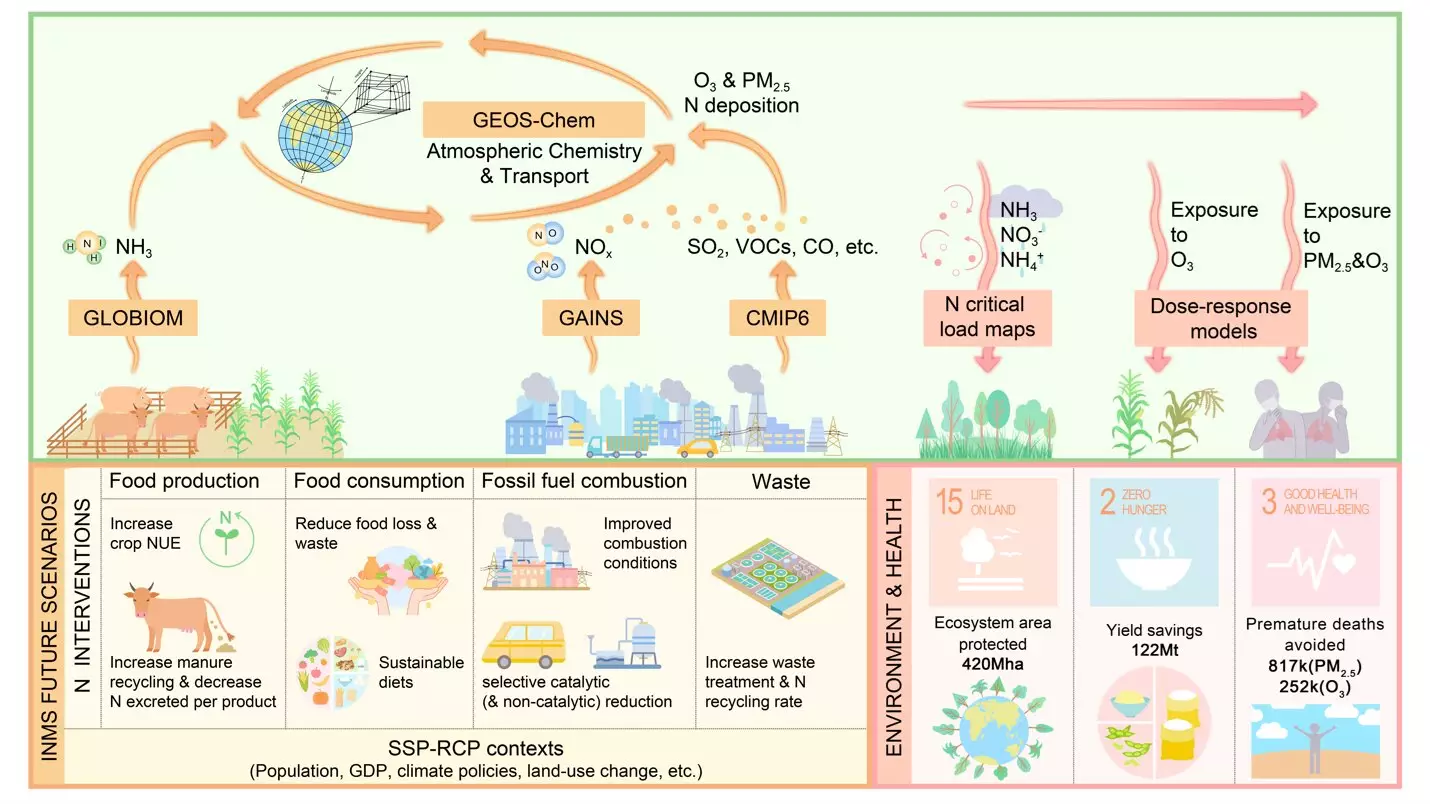The nitrogen cycle is a vital natural process that supports life on Earth, facilitating the conversion of nitrogen gas into forms usable by living organisms. However, this essential cycle is facing unprecedented pressures from human activities. Agricultural practices and fossil fuel combustion are significant contributors to the release of nitrogen-based pollutants, including ammonia, nitrogen oxides, and nitrous oxide. These emissions not only compromise air quality but also severely damage ecosystems, leading to a cascade of consequences that threaten human health, agricultural productivity, and environmental sustainability.
As the global population continues to grow and the demand for food and energy escalates, the effects of nitrogen pollution are anticipated to intensify. The urgency of addressing this issue is underscored by the need for effective nitrogen management strategies that can mitigate its impacts. While advancements have been made in nitrogen budget research, there remains a distinct lack of comprehensive studies connecting biogeochemical transformations with environmental outcomes across various media such as air, water, and soil.
Recognizing the pressing need for integrated solutions, an international research team embarked on a groundbreaking study to explore the potential of “nitrogen interventions.” These interventions refer to a set of targeted actions aimed at improving nitrogen management across different sectors. By employing a multidisciplinary framework, the researchers sought to assess these interventions’ efficacy in enhancing air quality and minimizing nitrogen deposition’s detrimental effects.
The study, published in the journal Science Advances, presents a compelling case for the adoption of nitrogen interventions. These measures include optimizing fuel combustion techniques, enhancing agricultural nitrogen efficiency, and curbing food waste. The results are promising: implementing these strategies could significantly reduce premature deaths linked to air pollution and diminish crop losses, presenting a dual benefit of improved public health and environmental resilience.
Quantifying the Impact of Nitrogen Policy Changes
One of the standout findings of the study is the projection of nitrogen emissions reductions by the year 2050. If high-ambition nitrogen policies are adopted, global emissions of ammonia and nitrogen oxides could be reduced by 40% and 52%, respectively, when compared to levels recorded in 2015. The implications of these reductions are profound, potentially preventing up to 817,000 premature deaths and mitigating ground-level ozone concentrations—thereby enhancing overall air quality and agricultural yields.
This analysis emphasizes a critical insight: the geographical disparities in nitrogen pollution require tailored interventions. Regions like Africa and Asia, which are currently the most adversely affected by nitrogen pollution, would stand to gain significantly from the implementation of these interventions. Furthermore, the study highlights the cumulative benefits of nitrogen management strategies, suggesting that the positive effects will amplify over time.
The researchers assert that the full potential of nitrogen interventions extends beyond immediate public health benefits; they also align with various Sustainable Development Goals (SDGs) set forth by the United Nations. Specifically, these interventions contribute to goals such as Good Health and Well-being (SDG3), Zero Hunger (SDG2), Responsible Consumption and Production (SDG12), and Life on Land (SDG15).
To realize these benefits, however, it is crucial for policymakers to adopt a holistic view that acknowledges the interconnectedness of nitrogen pollution and its multifaceted impacts. The collaborative nature of this research illustrates the importance of cross-disciplinary efforts in developing customized policies that address local environmental challenges.
As we confront the escalating issue of nitrogen pollution, it is essential that we adopt innovative and integrative approaches capable of mitigating its impacts while maximizing the benefits for public health and ecosystems. The findings of this study serve as a clarion call to action, urging stakeholders at all levels—from governments to local communities—to recognize the importance of nitrogen management. By prioritizing targeted interventions and fostering collaborative initiatives, we can pave the way toward a more sustainable and healthier future for our planet.

